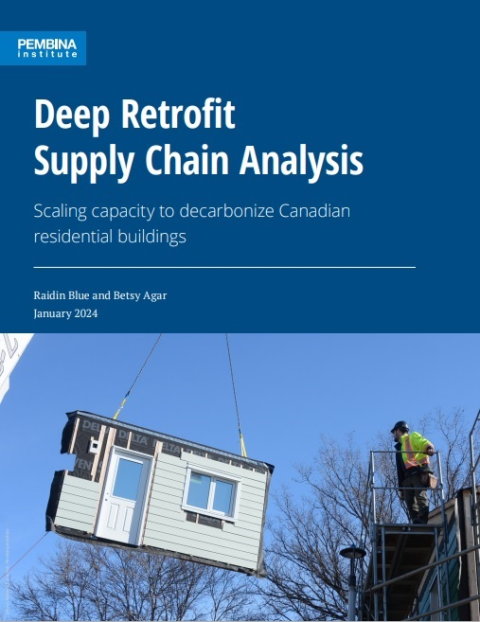Canada’s buildings sector is the third-largest contributor to the country’s emissions at 87 Mt CO2e. That’s 13% of the total. Retrofitting existing buildings is the only climate action that can both drive down emissions and protect Canadians from weather events that are increasing in severity and frequency as our climate changes.
A deep retrofit goes beyond simple renovations, encompassing upgrades to various building systems and equipment, including the envelope, HVAC, lighting and building controls. Retrofits could also integrate renewable energy systems to enhance sustainability by reducing reliance on grid electricity, especially while Canada’s electricity grid continues to decarbonize, thus freeing up grid capacity to enable electrification of other sectors of the economy.
Work on retrofits needs to go deeper and scale up until 4% to 6% of Canada’s building stock is being decarbonized yearly if we are to meet our 2050 decarbonization goals. Investment in retrofitting is an investment in local economies and jobs, and an opportunity to grow the workforce by improving access to equity-deserving groups. The research in this report aims to support the supply chain needed to make these deep retrofits happen.
Recommendations
- Recommendation 1: Provide market certainty by implementing regulations that require deep building decarbonization.
- Recommendation 2: Drive demand by clarifying the benefits of deep retrofits, helping to build trust in industry, and helping reduce complexity.
- Recommendation 3: Work with utilities and other levels of government to increase grants and incentives to help reduce the high cost of innovative, low-carbon technologies used in deep retrofits that is holding back market growth.
- Recommendation 4: Foster a more inclusive industry culture and practice by raising awareness and removing barriers to access for equity-deserving groups, and by requiring the employment of equity-deserving groups.
Find out more in the full report.










